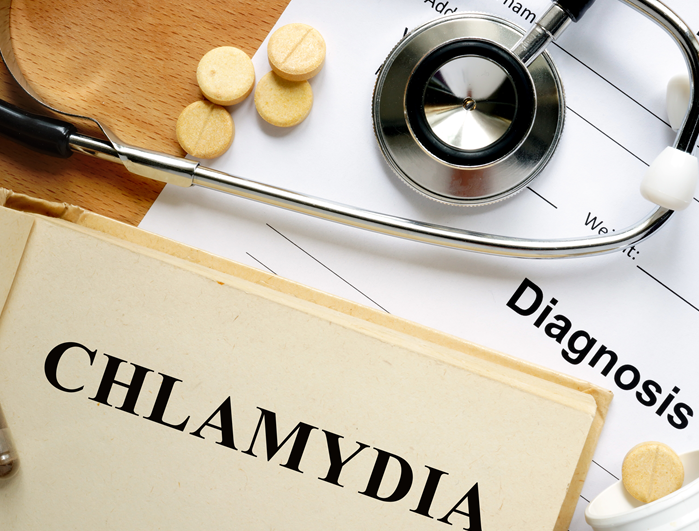How do you get it?
Chlamydia is acquired through sexual intercourse with an infected person. You can not get it from swimming, sharing baths or towels, from toilet seats or from kissing.
Symptoms
Most women with Chlamydia have no symptoms, however if a person is symptomatic, they may have:
-
Increased vaginal discharge due to an inflamed cervix
-
An infection of the urethra (the tube that leads from the outside into the bladder)
-
Pelvic pain, particularly with intercourse
In men, the symptoms are any of the following:
-
Discharge
-
Pain passing urine
-
Testicular pain and swelling.
Diagnosis
Often there are no symptoms; therefore Chlamydia is not usually picked up in a routine health check. You should be tested for Chlamydia if:
-
You have had any recent symptoms of a sexual infection
-
You have been found to have a sexual infection such gonorrhoea, herpes or genital warts.
-
You are female and your routine smear test indicates that you may have an infection.
A genito-urinary medicine (G.U.M) specialist can take a swab from the cervix specifically for Chlamydia. It will than be analysed at the laboratory and results will be usually ready within a week.
Treatment
Chlamydia is treated easily with antibiotics. It will not go away on its own. It is very important that both you and your partner get treatment, even if neither of you have symptoms.
If you are on the contraceptive pill, do not forget that antibiotics make it less effective. Therefore, it is best to abstain from sexual intercourse, or use a condom during, and for seven days following your course of antibiotics. To protect yourself from pregnancy and other STI's, use BSI kite marked condoms.
You will probably be given 'Azithromycin,' 'Erythromycin' or 'Tetracycline.' If you are given Tetracycline do not take them with milk.
Do not have sexual intercourse until after attending your follow-up appointment, as it is possible to re-infect each other.
Are you pregnant, Or Trying to become pregnant?
Chlamydia doesn't actually affect a pregnancy, but it may cause complications with the birth. Chlamydia can be passed from a mother with the infection to a baby during birth. The child can contract an infection in the eye or lung. You can be treated for Chlamydia while you are pregnant, therefore you must tell your doctor you are expecting so they can prescribe you a suitable antibiotic.
What are the risks if left untreated?
Untreated Chlamydia in women can lead to Pelvic Inflammatory Disease (P.I.D). This can be very mild or can make you feel unwell and cause a fever, low abdominal pain and backache. It can also cause discomfort during sex and can lead to an ectopic pregnancy. This is when the baby grows in the fallopian tubes instead of the womb.
Chlamydia may reduce fertility in both men and women. It is therefore essential that you and your partner are seen and examined by a doctor. We realize that it can be difficult to discuss this with your partner; however it is vital to ensure that further spread of Chlamydia can be prevented.
Prevention
You can reduce the spread of Chlamydia by:
-
Using a condom during sexual intercourse
-
Limiting the number of sexual partners
-
Having regular check-ups particularly if you have symptoms
In Europe and the States, screening is commonplace, and as a result, the incidences of P.I.D and infertility have decreased. It is recommended that you get regularly screened at either a G.U.M Clinic or by your Specialist Consultant especially as most women in the early stages of Chlamydia have no symptoms.



